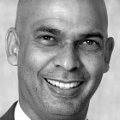As we all are aware, infrastructure development remains the key to Africa’s economic transformation. The question is: ‘How do we fast-track this development on our continent?’ Or maybe we should ask ourselves: ‘How do we realise this development at a faster pace on the continent?’
Many African countries are still handicapped by having to provide basic needs to their citizens. This inhibits their ability to develop the vital infrastructure projects that have the potential to grow their economy. Nonetheless, there is still a major appetite for developing projects in Africa. A multitude of investors are looking for projects to invest in, based on the good returns that can be achieved. The tricky part comes in balancing supply and demand to ensure that we develop sufficient projects that could lead to long-term benefits in our economies.
The key is to become more structured in our approach to developing infrastructure projects and ensure our plans are implemented. Visionary foresight is needed. Our focus should shift from the short-term benefits to seeing the long-term effect of implementing these essential projects. Furthermore, as Africans we have to realise that we have limitations and consequently request cooperation agreements by developing strategic partnerships with other countries. A fundamental element in developing infrastructure is to ensure the simultaneous growth in human capacity within the project. The process of developing individuals to manage our natural resources and economies better will go a long way to realising improved intra-Africa trade.
Governments should also explore how to clarify the role between the public and private sector responsibilities. The private sector should potentially play a more significant role in developing the economy, while Government focuses on creating a conducive business environment to improve the ease of doing business within the country, as well as within the global trading world.
So while investors are project hungry, I encourage our governments and private sectors to work together to deliver more projects that will sustain economic development in the long term. In this way it gives both the private and public sector the opportunity to start leading our continent at an increased upward trajectory, enabling us all to be at the forefront of creating a mighty Africa.










